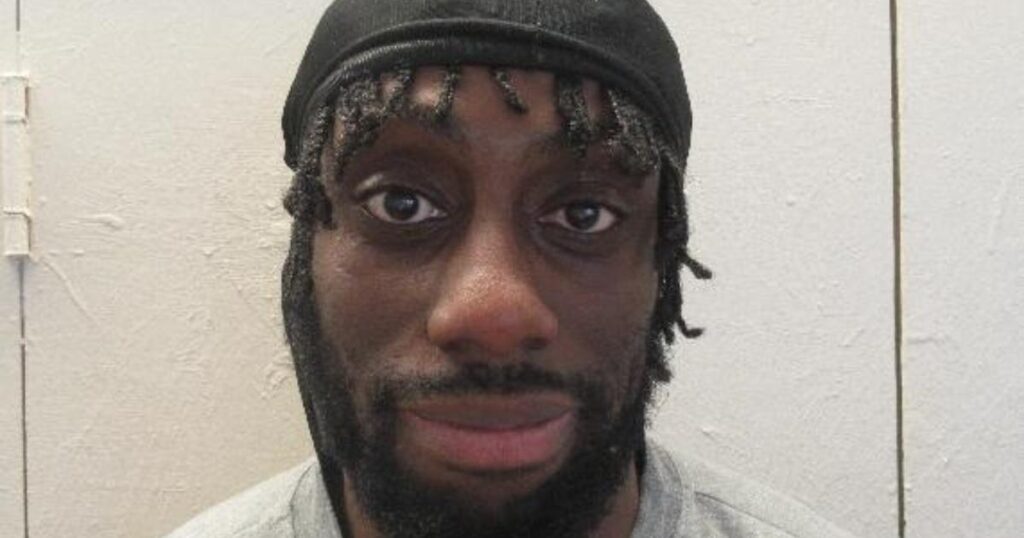Royal Barnes, 34, made videos where he hailed the murder as a “brilliant day” and mocked the outpouring of public grief, laughing uncontrollably as he drove past floral tributes.
Barnes was jailed for over five years in March 2014 for inciting terrorism overseas and three counts of transmitting a terrorist publication.
He has now been returned to jail for four and a half years after breaching his notification requirements after being sentenced at the Old Bailey today (March 28).
Lee Rigby was murdered by Michael Adebolajo, 29, and Michael Adebowale, 22, as he returned to his barracks in Woolwich on May 22, 2013.
The pair drove their car at Fusilier Rigby before attacking him with knives and attempting to decapitate him.
The soldier, a dad of one from Middleton, Greater Manchester, died of multiple cut and stab wounds after the attack.
Adebolajo had claimed he was a “soldier of Allah” and the killing was an act of war.
Barnes, who was associated with one of the murderers, was sentenced to five years and four months in jail in 2014 after he produced videos, posted on YouTube, showing footage of the scene of the murder and calling for British-based Muslims to fight the government.
He was released from prison in September 2016, but recalled in June 2017 for breaching his licence when he was found in possession of an iPhone which he hadn’t notified officers about.
He was then released again in May 2019 and was subject to a number of ‘Part 4’ notification requirements.
On October 26, 2023, he was arrested for breaches of these notification requirements relating to use of a vehicle, mobile phone and email account.
He was also found to have been involved in fraudulent activity related to possession of bank cards.
He pleaded guilty to these offences on October 25 last year and was sentenced on March 28, at the Old Bailey, to three-and-a-half years in prison for the two breaches and a further 12 months, to be served consecutively, for the fraud offence.
He must serve at least two thirds of his sentence in custody before being referred to a parole board.
Commander Dominic Murphy, head of the Met’s Counter Terrorism Command, said: “Monitoring those convicted of terrorism-related crimes is a key part of our work to ensure that they are not posing any further risk to the public.
“Terrorism offenders are subject to strict notification requirements once they have completed their sentences, and we are proactive in making sure they are sticking to these.
“As this case shows we will not hesitate to take action should we identify any breaches and it should also send a message that there are serious consequences for those who do so.”




